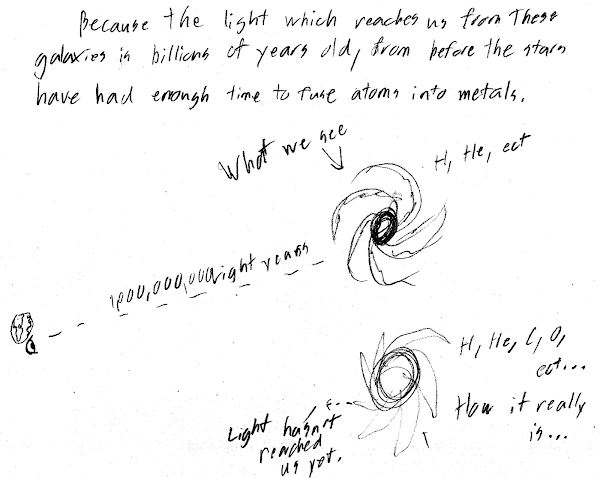Cuesta College, San Luis Obispo, CA
Discuss why there are no metal-rich stars observed in the extremely distant galaxies that can be observed. Explain your answer using the properties of stars and light.
Solution and grading rubric:
- p:
Correct. Discusses "look-back time," where the finite speed of light makes distant objects appear as they did in the past; and how the first generation of stars would be nearly hydrogen only, and contain very few metals. - r:
Nearly correct (explanation weak, unclear or only nearly complete); includes extraneous/tangential information; or has minor errors. At least understands nucleosynthesis process of metal-poor to metal-rich subsequent generations of stars. - t:
Contains right ideas, but discussion is unclear/incomplete or contains major errors. - v:
Limited relevant discussion of supporting evidence of at least some merit, but in an inconsistent or unclear manner. May discuss how certain stars are fainter, or blocked by intervening matter, etc. - x:
Implementation/application of ideas, but credit given for effort rather than merit. - y:
Irrelevant discussion/effectively blank. - z:
Blank.
Section 70160
p: 10 students
r: 6 students
t: 0 students
v: 12 students
x: 0 students
y: 2 students
z: 0 students
A sample "p" response (from student 6789):

A sample "r" response (from student 4207), only implying lookback time, but understanding the element-building process of subsequent star generations:

A series of sample "p" responses showing the ingenuity and creativity (here, from student 0911) in illustrating the finite speed of light and nucleosynthesis:

(..and from student 1208):

(...and lastly from student 1225):

No comments:
Post a Comment